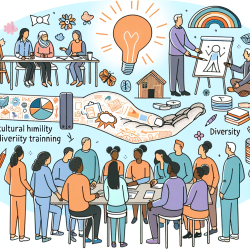Embracing Global Perspectives: A Pathway to Enhanced Healthcare Delivery
In an increasingly interconnected world, the globalization of healthcare is not just a concept but a reality that demands attention. The research article titled "Commentary on: a comparative study of the healthcare delivery systems of Korea and Thailand" by Kang and Buddhirakkul provides an insightful exploration into how different healthcare systems can yield varying outcomes, despite similar demographic characteristics. This comparative study serves as a clarion call for healthcare practitioners, especially nurses, to adopt a global perspective in addressing healthcare issues.
Learning from Korea and Thailand
The study highlights the contrasting healthcare delivery systems of Korea and Thailand, noting that despite Korea's higher gross national income, Thailand boasts lower maternal and infant mortality rates. This success is attributed to Thailand's grassroots healthcare system, which effectively mobilizes village health volunteers to provide basic health information and care at the community level. This system ensures accessibility and affordability of healthcare services, a lesson that can be invaluable for practitioners worldwide.
Implementing Global Insights Locally
For practitioners looking to improve their skills, understanding the structural nuances of different healthcare systems can provide a roadmap for local implementation. Consider the following strategies:
- Community Engagement: Emulate Thailand's model by engaging local communities in health promotion and disease prevention activities.
- Training and Education: Invest in training programs for community health workers to ensure they are well-equipped to provide basic care and health education.
- Policy Advocacy: Advocate for policies that support accessible and affordable healthcare services at the grassroots level.
The Role of Nurses in Global Health
Nurses and nurse researchers are pivotal in promoting health and preventing diseases on a global scale. The study underscores the importance of international collaboration and cultural understanding in achieving these goals. By learning from the successes and challenges of other nations, nurses can develop culturally and economically appropriate strategies for health promotion.
Encouraging Further Research
The study by Kang and Buddhirakkul also highlights the need for further research into the cultural and societal factors that influence health behaviors. Understanding these factors can lead to more effective interventions and improved health outcomes. Practitioners are encouraged to delve deeper into these areas, fostering international collaborations that can lead to innovative solutions.
To read the original research paper, please follow this link: Commentary on: a comparative study of the healthcare delivery systems of Korea and Thailand.










